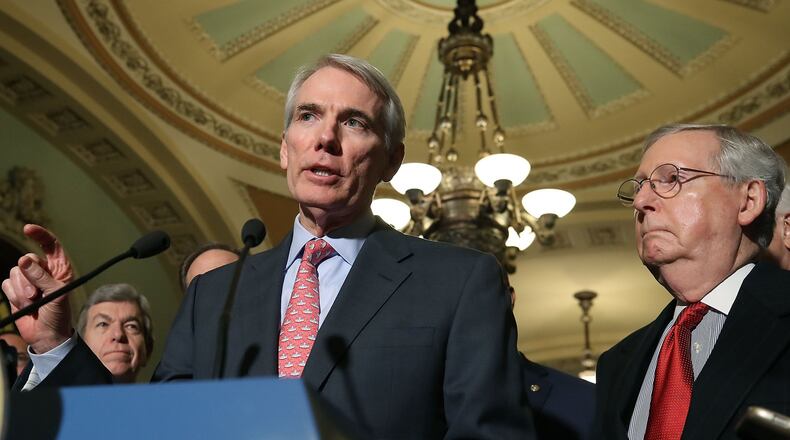Portman and other Republicans on the Senate Finance Committee are expected to end the mandate as part of their broader effort to overhaul the federal tax code to eliminate a number of deductions and reduce corporate and individual tax rates.
By killing the mandate, Republicans would save $338 billion during the next decade because fewer Americans would receive federal subsidies to buy their individual policies. But the GOP move provoked outrage among Democrats who claim the Republicans are trying to undercut Obamacare after congressional Republicans failed earlier this year to scrap the entire law.
The non-partisan Congressional Budget Office this month concluded that ending the mandate would lead to 13 million people dropping their insurance coverage by 2027 while raising premiums for those buying individual policies by an average of 10 percent.
The CBO report concluded that without the mandate to buy insurance, “healthier people would be less likely to obtain insurance,” adding t“the resulting increases in premiums would cause more people to not purchase insurance.”
Obamacare extended health insurance to millions of those without coverage by expanding Medicaid — a joint federal and state program that covers health costs for low-income people — and by providing financial help to middle-income people to buy individual policies through the marketplaces set up by the law. The law forced people to buy those policies or face a fine.
“Tax reform should be about cutting taxes for working families, not raising the cost of their health insurance,” said Sen. Sherrod Brown, D-Ohio, a member of the finance committee.
Rep. Tim Ryan, D-Niles, called the Republican decision “a disgrace,” tweeting that “the GOP’s tax scheme continues to find new ways to harm the most vulnerable.”
But Republican senators are hampered by Senate rules that their tax bill cannot add more than $1.5 trillion to nation’s publicly held debt during the next decade. By killing the mandate, they can use the savings to finance a more robust tax cut.
In a related development, Ohio State University President Michael Drake warned lawmakers that increasing the standard deduction to $24,000 for a married couple could cost universities millions of dollars in donations.
In a letter to the Ohio congressional delegation, Drake said increasing the standard deduction would reduce the number of taxpayers who itemize — “significantly lowering the value of the charitable deduction.”
Jessica Wehrman of the Washington Bureau contributed to this story.
